Results
-
 £54.95
£54.95SONGS OF THE GREAT WAR A Medley of Popular Songs 1914-1918 (Brass Band) - Wiffin, Rob
Music of the Great War is a five year project to use music of the period to educate and engage schools, colleges, town bands, and the wider public across the UK and the world to learn in a positive way about the events, the experience of the troops involved from all sides, and how music played its part.This year, to commemorate the centenary of the Great War a specially arranged medley Songs of the Great War has been created. The medley has been arranged for bands to rehearse and eventually perform on the 11 November 2015. It brings together some of the most popular tunes played, sung and performed by the men and women of the time - in the trenches and on the various home fronts.With the support of many countries and organisations, on the 11 November the medley will be first played in New Zealand and Australia. It will ripple east across the world being performed in countries like India and Pakistan before hitting Europe and onwards to include performances in Canada and the Caribbean. This could become one of the most played pieces of music in a 24-hour period.In Britain, there will be performances across the country, including some at key events and sites involving a wide range of military and non-military personnel.The medley includes: It's a Long Way to Tipperary; Your King and Country Want You; Good Bye-ee; Oh! It's a Lovely War; Hello! Hello! Who's Your Lady Friend; Take Me Back to Dear Old Blighty; Mademoiselle from Armentieres; There's a Long, Long Trail A-winding; If You Were the Only Girl in the World; Pack Up Your Troubles (In Your Old Kit Bag); Old Soldiers Never Die/Last Post.
Estimated dispatch 7-14 working days
-
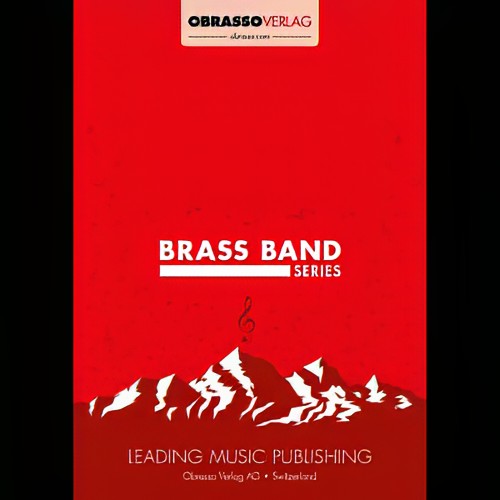 £54.20
£54.20The Yiddish Snail (Bb & Eb Bass Duet with Brass Band - Score and Parts) - Ratnik, Peter
Two mighty warrior elephant snails stand at the ready to do battle, both seasoned campaigners in the art of snail war, both dreaming about their own speed and grander in art of battle. The battle begins at a snail's pace, with both mighty warriors slivering towards each other, neither is paying attention of where they are sliding, only caring for their snail statues. They slide into each other and bop heads, both are knocked out! Dreaming commences with both warrior snails believing that they are fast and the Queen of Sheba's champion. They battle in a comical fashion with banter between them more so than actual fighting, still convinced that they are great warriors. They suddenly wake from their bump induced knockout and slow back down to a snail's pace. These two Yiddish Snails, alas are just slow old Yiddish Snails - never the great warriors they dreamed of.
Estimated dispatch 7-14 working days
-
 £54.20
£54.20THREE GREAT HYMNS (Brass Band) - Lorriman, Howard
Includes: Angelus; Deep Harmony; I Vow to Thee, My Country. Grade: Easy. Please note: soundfile is of Angeuls only
Estimated dispatch 7-14 working days
-
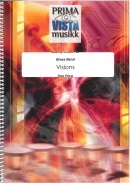 £24.95
£24.95VISIONS (Brass Band Extra score) - Price, Dan
2015 National Championships Finals Testpiece - Fourth Section - Extra score only. Visions paints an historical musical portrait of the small town of Briton Ferry (Llansawel) on the mouth of River Neath, South Wales. The area was heavily developed during the industrial revolution and became an important location for steel and tin plate production. Although written as a continuous piece of music, the work is divided into four sections; Briton Ferry, Brunel's Vision, Giant's Grave and Hen Gastell.
Estimated dispatch 7-14 working days
-
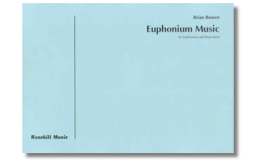 £42.00
£42.00Euphonium Music (Score only) - Brian Bowen
Written in 1978, the work is constructed in three movements and is virtually a concerto for euphonium and band. The first movement begins with an unaccompanied motto theme, which uses all twelve notes of the scale but with a tonal feel. The slow second movement is based on an original song melody by the composer - 'The Eyes of God' - and affords lyrical and richly expressive playing that is typically euphonium. Movement three follows without a break - a capricious movement which ends triumphantly. Now available in versions for piano, brass band, wind band, and orchestra, Euphonium Music can be seen as a major contribution to the literature for the instrument. Duration: 15 minutes An orchestral version is available on hire.
Estimated dispatch 7-9 working days
-
 £52.00
£52.00Euphonium Music (Parts only) - Brian Bowen
Written in 1978, the work is constructed in three movements and is virtually a concerto for euphonium and band. The first movement begins with an unaccompanied motto theme, which uses all twelve notes of the scale but with a tonal feel. The slow second movement is based on an original song melody by the composer - 'The Eyes of God' - and affords lyrical and richly expressive playing that is typically euphonium. Movement three follows without a break - a capricious movement which ends triumphantly. Now available in versions for piano, brass band, wind band, and orchestra, Euphonium Music can be seen as a major contribution to the literature for the instrument. Duration: 15 minutes An orchestral version is available on hire.
Estimated dispatch 7-9 working days
-
 £62.00
£62.00Stories for Saroyan (Parts only) - Elgar Howarth
Stories for Saroyan was written for Robert Childs and has also been performed to great acclaim by his son David Childs. A concerto of stature, graced with the composer's hallmark scoring, intense passion, and enigma! The Saroyan of the title is the American author William Saroyan whose tales inspired the composition. Saroyan, who one the Pulitzer Prize and turned it down, became known for loosly structured, impressionistic plays and stories stressing his belief in people's basic innocence. Elgar Howarth has set the standard of modern brass arranging, and his original works feature largely in the Winwood Music catalogue
Estimated dispatch 7-9 working days
-
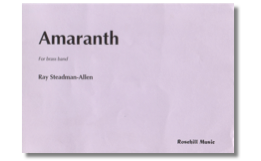 £32.00
£32.00Amaranth (Score only) - Ray Steadman-Allen
The title of the work refers to a legendary imaginary purple flower, mysterious in that it never fades or dies. In an extended single movement the music explores the colours and textures of the brass band. Duration: 10:00
Estimated dispatch 7-9 working days
-
 £42.00
£42.00Amaranth (Parts only) - Ray Steadman-Allen
The title of the work refers to a legendary imaginary purple flower, mysterious in that it never fades or dies. In an extended single movement the music explores the colours and textures of the brass band. Duration: 10:00
Estimated dispatch 7-9 working days
-
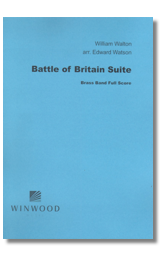 £40.00
£40.00Battle of Britain Suite (Score only) - William Walton
It takes a special ability to compose film scores which serve the images perfectly yet translate into first class concert music. William Walton was such a talent as the continuing popularity of his brilliantly evocative film music shows. This suite includes the famous Dog Fight and majestic March - used for the end titles of the film - along with the Siegfried Music which parodies Wagner's horn call. You can practically feel the buzzing of Spitfires in the air! Winwood Music are delighted to make this music available to the brass band world in a fabulous arrangement by Edward Watson which captures the essence of the original while translating it seamlessly to the new idiom. Duration: 12:15
Estimated dispatch 7-9 working days
